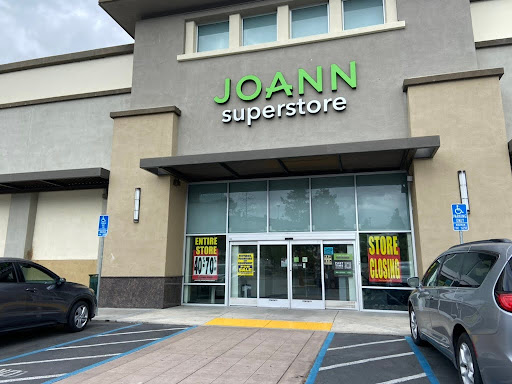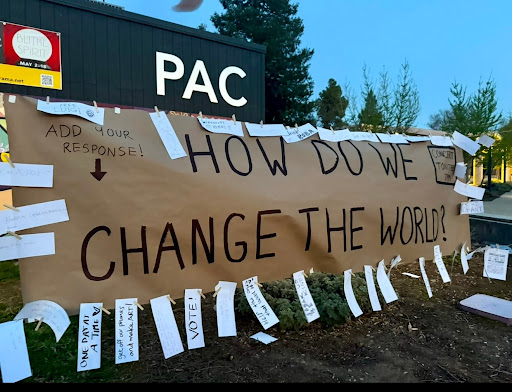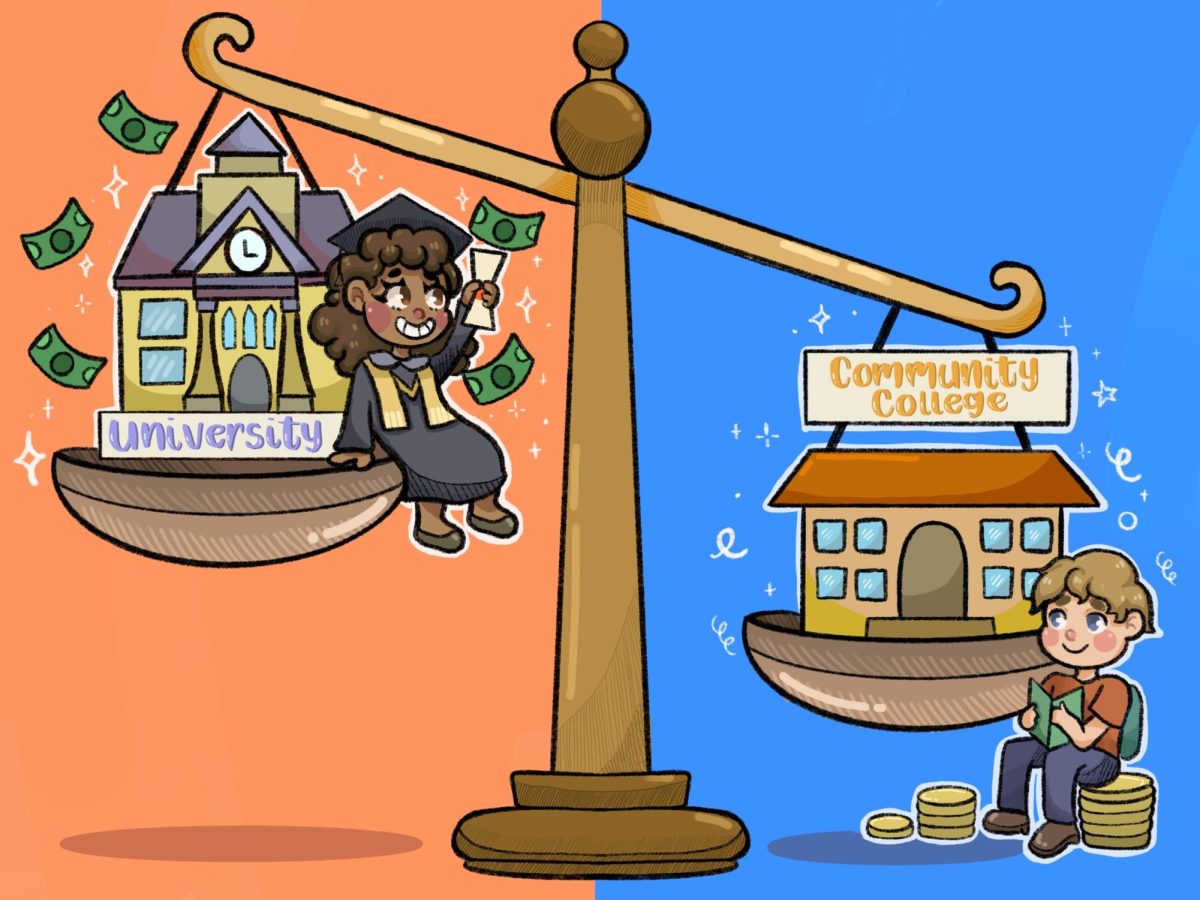Tesla drivers have seen their cars come under fire recently, both figuratively and literally. For some locals, the backlash doesn’t feel fair.
“I don’t think that they deserve to be vandalized,” said Nami Ranjbarsadeghi, a communications major at Diablo Valley College who drives a Tesla Model 3.
“With the protests on the stance of Elon Musk, I don’t like him and I think that it’s an overreach of what he’s trying to do, [but] personally I think that taking it to the point of vandalizing people’s cars is a step too far, because these people made the choice of buying Teslas no matter whether it was before or after Elon was doing [the] things he’s done.”
Ranjbarsadeghi added, “I feel like those are people’s choices, and maybe now they kind of regret that choice, [but] it’s still their property.”
Anti-Tesla protests have grown regionally and globally in the months since President Donald Trump created the Department of Government Efficiency (DOGE) and named billionaire businessman and Tesla CEO Elon Musk, as head of the agency aimed at slashing government programs and spending — while firing tens of thousands of federal workers in the process.
The public revolt against Tesla started Jan. 20, the day Trump returned to the White House, when a Tesla was set on fire at a dealership in Salem, Ore. A week later, another fire was lit at a Tesla dealership in Loveland, Colo., where graffiti with the word “NAZI” was written in black spray paint on the dealership building itself.
During the first three months of 2025, numerous Tesla vehicles, dealerships, and other Tesla-related property were vandalized across the country in at least eight states. And the wave of anti-Tesla incidents wasn’t limited to the United States.
In London, protestors from the British environmentalist group Just Stop Oil poured orange liquid latex on a Tesla Optimus robot, according to a March 12 report from Reuters. A week later in Ontario, more than 80 Teslas were vandalized at a Tesla dealership, according to a March 20 report by CBC.
While many protesters are steaming about the outsized influence Musk suddenly has over U.S. politics, local Tesla owners themselves think the protesters—who continue to march and rally outside dealerships nationwide, including in the East Bay—have gone too far with their actions.
Kody Caro, a student at DVC whose grandfather owns a Model 3, said he understood the protestors’ anger directed against Musk and DOGE, but was disgusted seeing the vandalism of Tesla cars.
“I feel the vandalism and other people acting upon that, and defacing other people’s cars, is like the anger is in the right spot but directed at the wrong person, because this is just a person who owns the vehicle,” Caro said. “They drive it daily.”
“If that happened to my grandfather’s car, I myself would be angry. When it’s upon somebody else’s property, I feel like that’s too far because the message and everything political about it [is] totally valid.”
Even some people who don’t own a Tesla questioned the logic and message behind the acts of vandalism—even as they understood the public anger that helped produce them.
“I think with [the] vandalism, you don’t always know if the person actually supports Elon and the stuff he’s doing in the government, and I think that’s where that kind of complication comes from,” said Miles Williams, a student on the Pleasant Hill campus who said he doesn’t own or drive a Tesla.
Now, safety from protestors has become a paramount issue for some Tesla drivers who keep their car in the garage. Going out also presents its issues.
“I’m definitely nervous if I were to drive into a more left-leaning climate like Berkeley, or somewhere with high crime rates,” said Caro, who admitted he doesn’t drive his grandfather’s Model 3 to DVC or very often in general.
For Williams, the attention being put on Tesla drivers may be deserved.
“I definitely feel like you might have a target on your back for sure, and I feel like it’s definitely justified,” he said.
Ranjbarsadeghi said he doesn’t feel concerned about the safety of his car, mainly due to where he lives in San Ramon.
“Where we live, almost 80 to 90 [percent] of the cars are Teslas so it’s not exactly common to have that sort of thing done against your car,” he said. He recommended using vigilance, and Tesla’s own security system, to prevent anything bad from happening to one’s car.
“The sentry mode that comes with Teslas is what we really use the most, just because should something happen to it, hopefully it’s caught on camera so we can do something about it,” Ranjbarsadeghi said.
Meanwhile, other Tesla owners have decided to “do something about it” by slapping a sticker on their trunk or rear bumper, reading “I bought this before Elon went crazy” or “Anti-Elon Tesla Club.”
Williams said he would do the same if he owned a Tesla.
“I would try to put some stickers on my vehicle to say that I do not support what Tesla is standing for right now, or what Elon is standing for, because I do understand how strongly people feel about what’s going on,” he said.
Caro suggested another way to mitigate potential vandalism, in the case of protecting his grandfather’s Tesla, could be to remove all Tesla logos from the car.
“I would want to debadge it,” he said. “I feel like for [my grandfather’s] safety, if you were to debadge it, it would be slightly better.”
Caro also suggested he would wrap the car with PPF (paint protection film) so that if someone were to throw anything at it, the paint wouldn’t get scratched or chipped.
But Ranjbarsadeghi said he wouldn’t do anything to guard his Tesla from future acts of vandalism, because he and other owners should know and live with what they bought.
“When I see another Tesla, it’s like it was your money that you put into buying the car, so whether or not you have regrets, it’s on you,” Ranjbarsadeghi said.
“I’m not gonna think about [how] every single Tesla driver is supporting Elon Musk. There are definitely some that do support him, but at the same time not all of them do, so to me it doesn’t really matter.”
The response to the wave of vandalism and protests aimed at Tesla?
“I definitely fall on the side of thinking that Tesla should be boycotted,” said Williams. “I think the right way to go about it would just be boycotting the company for the actions that Elon is doing.”
Ranjbarsadeghi agreed. ”If you want to really stand up against Elon,” he said, “don’t buy his product.”











































































